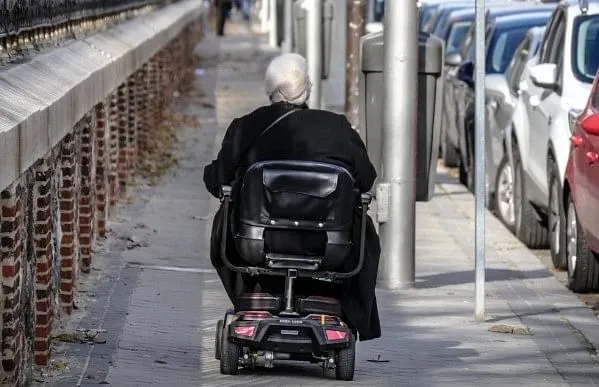With an estimated 26 million people living with impairments, India has one of the world’s largest populations of people with disabilities. However, various impediments exist in the country’s healthcare system that hinder persons with disabilities from obtaining sufficient care.
Physical impediments are widespread, such as inadequate facilities and a lack of accessible medical equipment. Healthcare personnel are also under-trained in how to properly connect with and treat people with impairments, which leads to unfavorable attitudes and misdiagnosis.
People with disabilities experience significant difficulties to obtaining healthcare services in Jammu and Kashmir, including physical barriers and negative attitudes among healthcare personnel.
A lack of disability-specific healthcare services and assistive devices also contributes to inferior quality of care or delayed treatment. This makes it incredibly difficult for people with disabilities to obtain healthcare services, which can have serious consequences for their health and well-being.
Prioritizing disability Inclusion in healthcare can have various benefits, including improved overall health outcomes for people with disabilities. We can prevent health issues from deteriorating and offer prompt treatment if healthcare services are accessible and customized to the requirements of people with disabilities.
This, in turn, can lead to improved quality of life and more independence for those with disabilities. Furthermore, promoting disability inclusion might help to minimize healthcare expenses.
When people with disabilities receive proper care, they are less likely to acquire secondary health concerns or require expensive emergency treatment.
This can also lead to fewer hospitalizations and a lower cost on healthcare systems. Therefore, promoting disability inclusion can result in a more equal and inclusive healthcare system.
When healthcare services are available to all, regardless of ability, it supports the human right to health and guarantees that no one is left behind. This can also lead to more social inclusion and less stigmatization of people with disabilities.
Several examples from South Asia show how disability inclusion may be successfully integrated into healthcare services. In Sri Lanka, the CBR Network offers a variety of disability-specific healthcare services as well as disability-specific training to healthcare practitioners.
In Bangladesh, the Centre for the Rehabilitation of the Paralyzed (CRP) provides comprehensive rehabilitation treatments to people with disabilities, as well as accessible facilities and assistive technology.
In India, the All India Institute of Medical Sciences (AIIMS) has created accessible facilities and a disability-specific training program for healthcare practitioners. These examples show that disability inclusion in healthcare is possible with adequate planning, resources, and dedication.
Policymakers have a vital role in increasing disability inclusion in healthcare. They can enact rules and regulations requiring disability accessibility in healthcare settings, such as accessible facilities and assistive devices.
They can also commit resources to disability-specific healthcare services and training initiatives for healthcare practitioners. Healthcare providers also have a responsibility to prioritize disability inclusion in their services.
This includes providing accessible facilities and medical equipment, as well as training staff on how to effectively communicate with and treat persons with disabilities. It also includes offering disability-specific healthcare services, such as rehabilitation and counselling.
It is equally essential to involve persons with disabilities in the planning and implementation of disability-inclusive healthcare services. Persons with disabilities have valuable insights into their own healthcare needs and experiences, and their input can ensure that healthcare services are tailored to their needs and preferences.
Ultimately, prioritising disability inclusion in healthcare is essential to ensure that persons with disabilities receive the care they need and deserve.
By addressing the barriers that persons with disabilities face in accessing healthcare services, we can improve their health outcomes and quality of life, reduce healthcare costs, and create a more equitable and inclusive society.
Policymakers, healthcare providers, and persons with disabilities themselves all have a role to play in achieving disability-inclusive healthcare.
It is noteworthy that disability inclusion in healthcare is not a one-time solution but an ongoing process. As the needs and preferences of persons with disabilities continue to evolve, healthcare providers must adapt their services and facilities accordingly.
This requires a commitment to continuous improvement and an understanding that disability inclusion is a fundamental human right.
Together, we can enhance the health outcomes and quality of life of people with disabilities, lower healthcare costs, and build a more fair and inclusive society by incorporating disability inclusion into healthcare services.
Dr Ateeb Ahmad Parray, Global Health Researcher
Disclaimer: The views and opinions expressed in this article are the personal opinions of the author.
The facts, analysis, assumptions and perspective appearing in the article do not reflect the views of GK.






